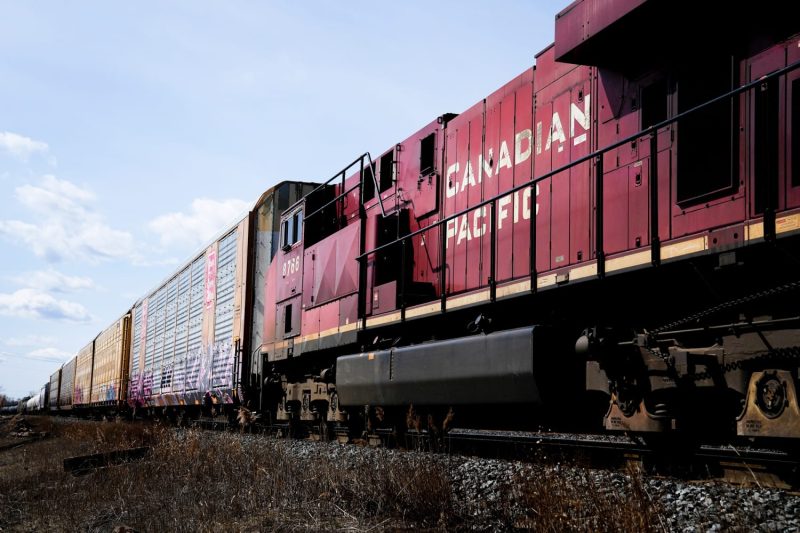The possible work stoppage at Canada’s two largest railroads, Canadian National Railway (CN) and Canadian Pacific Railway (CP), has raised concerns about potential disruptions to the U.S. supply chain. Rail transportation plays a vital role in the flow of goods between the two countries, and any interruption in service could have significant implications for businesses on both sides of the border.
The rail industry in Canada is a key part of the country’s economy, with CN and CP being major players in transporting a wide range of goods, including automotive parts, agricultural products, and consumer goods. The potential work stoppage stems from ongoing contract negotiations between the railroads and the unions representing their workers. If an agreement is not reached, union members could go on strike, leading to a halt in rail operations.
One of the primary concerns surrounding a work stoppage is the impact it could have on the transportation of goods to and from the U.S. Disruptions in rail service could lead to delays in delivering products to American businesses, affecting manufacturing operations and supply chains. This, in turn, could result in shortages of essential goods and raw materials, affecting various industries in the U.S.
In addition to delays in shipments, a work stoppage could also lead to increased transportation costs for businesses. With rail service disrupted, companies may need to find alternative means of transportation, such as trucks or air freight, which can be more expensive and less efficient than rail. These higher costs could then be passed on to consumers, leading to potential price increases for goods imported from or exported to Canada.
Moreover, the ripple effects of a rail work stoppage could extend beyond the transportation sector. Industries that rely on timely delivery of goods, such as manufacturing, retail, and agriculture, could experience disruptions in their operations. Just-in-time inventory systems, which many businesses rely on to minimize inventory costs, could be thrown off balance, leading to production delays and revenue losses.
To mitigate the potential impact of a work stoppage, businesses on both sides of the border should consider implementing contingency plans. This may involve diversifying transportation options, increasing inventory levels, or adjusting production schedules to accommodate potential delays. Open communication with suppliers and customers is also essential to manage expectations and minimize disruptions to the supply chain.
In conclusion, the possible work stoppage at Canada’s two largest railroads poses a significant risk to the U.S. supply chain. Businesses must be prepared to navigate the challenges that may arise from disruptions in rail service to ensure the continued flow of goods and maintain operational efficiency. By proactively addressing potential risks and implementing contingency measures, companies can better weather any disruptions that may occur in the transportation sector.


































